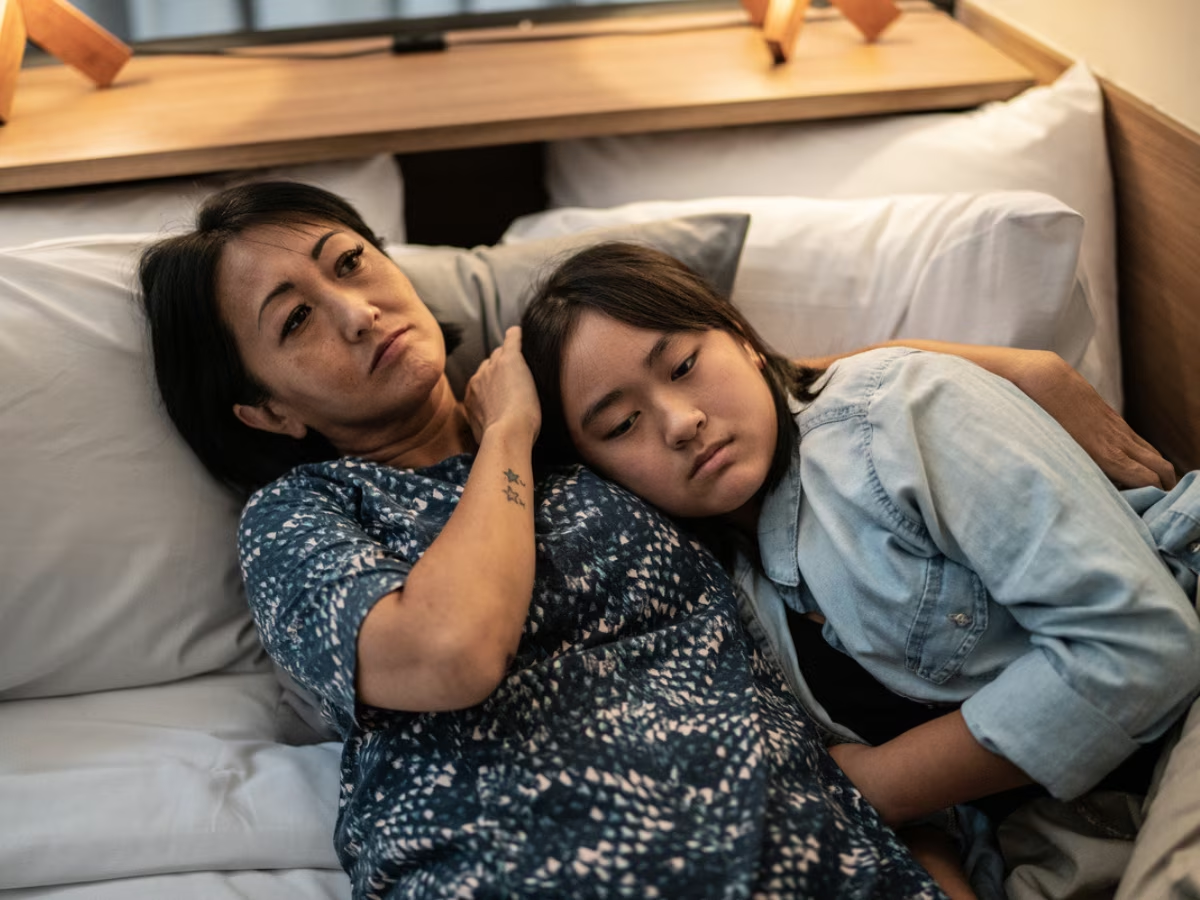Overcome bulimia nervosa through thoughtful care
With proper support and treatment, you can develop a healthy relationship with food and your body.

What is bulimia nervosa?
Individuals with bulimia nervosa, or as it’s commonly called bulimia, often struggle with feelings of shame, guilt, a lack of control around food, and tolerating fullness. This eating disorder involves periods of binge eating followed by compensatory behaviors which can lead to severe physical and psychological consequences.
Signs & symptoms of bulimia nervosa
Living with bulimia nervosa can be difficult and overwhelming. Here are some signs and symptoms that you can look for:
Risk factors for bulimia nervosa
It is not your fault. Bulimia nervosa is not a choice or a personal weakness - it is caused by complex conditions that involve biological, psychological, and social factors. Several factors can increase the risk of developing the disorder, including:
Diet and weight loss concerns
Engaging in restrictive diets and having concerns about weight, body shape, or appearance can increase the risk of bulimia nervosa. Unbalanced dieting can lead to feelings of deprivation, which may trigger binge eating episodes.
Mental health
Factors such as depression, anxiety, or substance use disorders, as well as characteristics of perfectionism and/or impulsivity can be associated with a higher risk of bulimia nervosa.
Trauma and stress
Traumatic life events can increase the risk of bulimia nervosa. Binge eating and purging can become unhealthy coping mechanisms when in emotional distress.
What does bulimia nervosa treatment look like?


Monte Nido can help
This severe psychological and medical condition requires clinical, psychological, and nutritional care so you can stabilize your mental and physical well-being and develop tools to live life more fully.
In other treatment facilities, it is typical for only 45% of people with bulimia to experience recovery after treatment, and the highest recovery rate happens between 4 and 9 years after treatment has started (Steinhausen et al., 2009).
You don’t have to wait years or flip a coin on your recovery. Our research has shown that 75% of clients improve after 6 months of treatment, with the majority of clients reporting improvement in their depression, anxiety, and quality of life. We provide comprehensive, evidence-based treatment programs to support individuals in overcoming bulimia nervosa and enjoy lasting recovery. With a variety of treatment options, from intensive 24/7 care to virtual support, you can recover and reclaim your life.
Our dedicated doctors, nurse practitioners, dietitians, therapists, social workers, and mental health counselors will customize your treatment plan and provide individual and group therapy sessions. We’re here to give you the best chance for long-term recovery, which you deserve
If you have more questions about bulimia nervosa treatment at Monte Nido, please reach out.
Frequently asked bulimia nervosa questions
Some physical symptoms may include:
- Dental issues, including tooth decay, chipped teeth, or stained or yellow teeth
- Swelling of cheeks, mouth, or jaw
- Calluses on hands and knuckles
- Mouth sores
- Changing voice
- Cardiac issues
- Menstruation disturbances
- Dehydration
- Fatigue
- Weight fluctuation
Behavioral symptoms may include:
- Eating excessive amounts of food
- Self-induced vomiting
- Abuse of laxatives and diuretics
- Excessive exercising
- Extreme fluid intake
Emotional symptoms of bulimia may include:
- Depression, anxiety
- Extreme fear of gaining weight
- Low self-esteem and dissatisfaction with one’s appearance
- Social withdrawal
- A lack of self-control
- Denial of binging, purging, and other harmful behavior
Creation of lifestyle schedules or rituals to make time for binge-and-purge sessions:
- Individuals with bulimia nervosa can develop food rituals such as only eating certain types of food or food groups or only eating in certain situations. They can feel uncomfortable eating around other people, fear eating in public, skip meals or drink large amounts of water, and steal or hoard food.
- A person who needs bulimia treatment might also schedule time for binging and purging, dress in baggy clothes to hide their body, frequently diet, have extreme mood swings, or withdraw from friends and activities they once enjoyed.
Other warning signs of bulimia include:
- Disappearance of food in a short time
- Frequent trips to the bathroom after meals
- Presence of food wrappers or containers
- Eating meals in secrecy
- Creation of lifestyle schedules or rituals to make time for binge-and-purge sessions.
- Physical signs or smells of vomiting
- General behavior and attitude indicate that weight loss, dieting, and control of food are becoming primary concerns
Bulimia can affect anyone, regardless of age, gender, body size, or background. It is most common in young women but also affects young men, transgender individuals, and older adults.
Although the purging behaviors are undertaken to prevent weight gain or counteract the calories taken in during a binge eating episode, bulimia nervosa doesn’t usually result in extreme weight loss in the same way that anorexia nervosa does.
In most cases, bulimia nervosa doesn’t cause major weight loss, and many people with the disorder are at a “normal” weight or even in heavier presenting bodies. There are many different body types, and any of them can host an eating disorder. You can’t judge a book by its cover, and you can’t diagnose an eating disorder by a person’s weight.
.avif)
.svg)




.avif)
